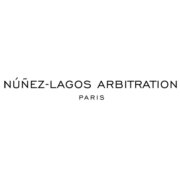Best Merger & Acquisition Lawyers in France
Share your needs with us, get contacted by law firms.
Free. Takes 2 min.
Or refine your search by selecting a city:
List of the best lawyers in France
About Merger & Acquisition Law in France
Merger & Acquisition (M&A) law in France is a sophisticated field that concerns the consolidation of companies or assets through various types of financial transactions. These include mergers, acquisitions, consolidations, tender offers, purchases of assets, and management acquisitions. The French legal framework is known for being robust yet flexible, allowing various transaction structures under the guidance of legal and financial advisors. The process is governed by both national laws and European regulations, necessitating a thorough understanding of the interplay between domestic and international rules.
Why You May Need a Lawyer
Legal expertise in M&A is crucial due to the complexity and high stakes involved in such transactions. Common scenarios where legal advice is indispensable include:
- Due diligence processes where the financial, legal, and operational aspects of a target are scrutinized.
- Structuring transactions to avoid antitrust issues and to achieve optimal tax efficiency.
- Negotiating and drafting contracts to ensure favorable terms and minimize risk.
- Navigating regulatory and compliance requirements imposed by French and EU authorities.
- Dispute resolution during negotiations or post-transaction to protect your interests.
Local Laws Overview
Some key aspects of French M&A laws include:
- Regulatory Framework: Governed by the French Commercial Code and Financial Markets Authority (AMF) regulations, with particular scrutiny for cross-border transactions.
- Employment Law Considerations: Obligations towards employees during a merger or acquisition, including consultation processes with worker councils.
- Antitrust Laws: Transactions above certain thresholds must be notified to the Competition Authority to prevent anti-competitive effects.
- Financial Regulation: Public takeover rules, including mandatory public offers when certain thresholds of control over a public company are exceeded.
Frequently Asked Questions
What is the typical timeline for completing an M&A transaction in France?
The timeline can vary significantly, but generally, a transaction can take anywhere from three to six months, barring any regulatory challenges or unforeseen legal issues.
Are there any specific regulatory approvals required for M&A in France?
Yes, transactions often require approvals from competition authorities and sometimes sector-specific regulators, especially in industries such as finance and telecommunications.
What role do employee representatives play in M&A transactions?
French law mandates consultation with employee representatives, particularly works councils, which must be informed and consulted at various stages of the transaction.
How is confidentiality handled during M&A processes in France?
Confidentiality is critical, and parties generally enter into non-disclosure agreements (NDAs) to protect sensitive information during negotiations.
Can foreign entities freely acquire French companies?
While generally permissible, foreign acquisitions can be subject to restrictions and may require government approval, particularly in strategic sectors.
Are there any tax implications in M&A transactions in France?
Yes, tax considerations play a significant role, and it’s important to structure the transaction efficiently to address issues like capital gains and VAT.
What are the risks of not complying with French M&A laws?
Non-compliance can lead to fines, transaction delays, or nullification of agreements, along with potential reputational damage.
How is the value of a target company assessed?
Valuation involves financial, legal, and strategic analysis and typically requires collaboration between legal, financial advisors, and company executives.
What happens if disputes arise during negotiations?
Disputes are often addressed through negotiated settlements, mediation, or arbitration to avoid prolonged litigation.
Is post-merger integration a legal concern?
Yes, effective post-merger integration can involve legal issues such as contractual compliance, intellectual property rights, and employment law considerations.
Additional Resources
For more information and assistance in M&A transactions in France, consider the following resources:
- French Competition Authority (Autorité de la Concurrence)
- French Financial Markets Authority (Autorité des Marchés Financiers - AMF)
- Council of State (Conseil d'État) for regulatory appeals
- Professional legal associations like AFJE (French Corporate Counsel Association)
Next Steps
If you are considering or involved in an M&A transaction, it's crucial to seek professional legal advice. Start by:
- Identifying and retaining a lawyer with expertise in M&A and knowledge of local laws.
- Preparing a comprehensive set of documents about your current and target company’s legal, financial, and operational standing.
- Engage in initial consultations to discuss your objectives, potential risks, and strategy.
Be proactive in understanding the legal intricacies at each stage of the transaction to ensure a smooth and compliant process.
Lawzana helps you find the best lawyers and law firms in France through a curated and pre-screened list of qualified legal professionals. Our platform offers rankings and detailed profiles of attorneys and law firms, allowing you to compare based on practice areas, including Merger & Acquisition, experience, and client feedback.
Each profile includes a description of the firm's areas of practice, client reviews, team members and partners, year of establishment, spoken languages, office locations, contact information, social media presence, and any published articles or resources. Most firms on our platform speak English and are experienced in both local and international legal matters.
Get a quote from top-rated law firms in France — quickly, securely, and without unnecessary hassle.
Disclaimer:
The information provided on this page is for general informational purposes only and does not constitute legal advice. While we strive to ensure the accuracy and relevance of the content, legal information may change over time, and interpretations of the law can vary. You should always consult with a qualified legal professional for advice specific to your situation.
We disclaim all liability for actions taken or not taken based on the content of this page. If you believe any information is incorrect or outdated, please contact us, and we will review and update it where appropriate.
Browse merger & acquisition law firms by city in France
Refine your search by selecting a city.

















